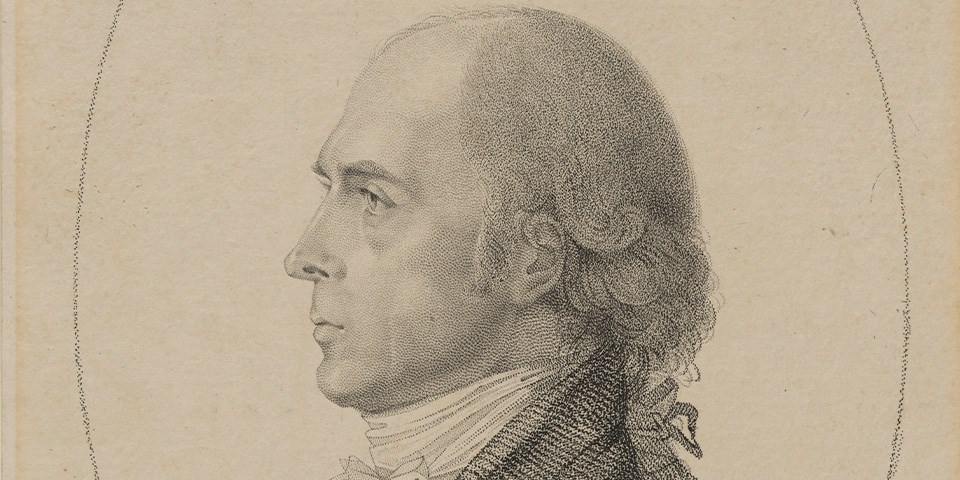Part of a series of articles titled The Constitutional Convention: A Day by Day Account for September 1787.
Article
September 13, 1787: Sumptuary Laws

National Portrait Gallery, Smithsonian Institution, https://npg.si.edu/object/npg_NPG.91.20?destination=node/63231%3Fedan_local%3D1%26edan_q%3Djames%252Bmadison
“From whence it originated I know not, but it is whispered here, there is great disagreement among the gentlemen of our delegation, that the general [Washington] and yourself on a very important question were together, Mr. M — n [Mason] alone and singular in his opinion and the other two gentlemen [likely Randolph and Blair] holding different sentiments.”
--letter from Virginia politician Joseph Jones to his friend, James Madison
Mason (VA) picked up his previously shared idea for sumptuary laws: laws which discourage purchase of luxury goods. He worried about “the extravagance of our manners, the excessive consumption of foreign superfluities, and the necessity of restricting it, as well with economical as republican views.” In order to promote “economy, frugality, and American manufactures,” he suggested a committee be created to consider adding sumptuary laws to the Constitution. Johnson (CT) seconded his motion, and it passed unanimously without debate. Mason, Franklin (PA), Dickinson (DE), Johnson, and Livingston (NJ) were appointed to the committee. (No record exists of the committee meeting, and it never released a report to the Convention.)
Next, Mason renewed his proposal to permit the states to collect export taxes to cover the costs of inspecting and storing such commodities as tobacco. He proposed a clause for that purpose. There was no debate, and the motion carried.
The Convention moved on to the Committee of Style’s second draft of the Constitution. Several minor changes were approved.
- The Convention created a committee to add sumptuary laws (laws regulating luxury goods), but this committee ultimately never released a report.
- Most of the rest of the day was spent making minor wording changes to the Committee of Style’s second draft of the Constitution.
- Washington (VA) dined with the Vice President of Pennsylvania, Charles Biddle, and drank tea at the Powels’.
- Sherman (CT) wrote from Philadelphia to Zebulon Butler in Wilkes Barre. In an obvious effort to help still conflict between Pennsylvania and the Connecticut settlers in the Wyoming Valley, Sherman informed Butler that Pennsylvania had appointed Commissioners to examine the claims of those who had bought land within Pennsylvania claimed by Connecticut, and the commissioner seemed disposed to do justice. One suspects that the letter might have been suggested by Sherman’s fellow elder-statesman, the President of Pennsylvania, Franklin (PA).
- Today was rainy and cool.
Last updated: September 14, 2023
